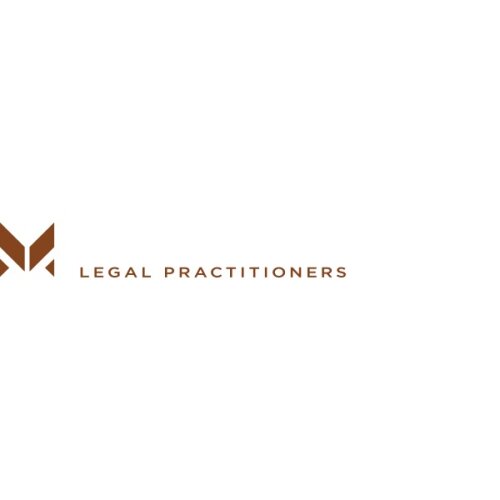Best Tax Increment Financing Lawyers in Zambia
Share your needs with us, get contacted by law firms.
Free. Takes 2 min.
Or refine your search by selecting a city:
List of the best lawyers in Zambia
About Tax Increment Financing Law in Zambia
Tax Increment Financing (TIF) is a public financing method that is used for subsidizing redevelopment, infrastructure, and other community improvement projects in Zambia. Through TIF, future tax revenue increases from a designated district can be used to fund current improvement projects. It aims to stimulate private investments in underdeveloped areas by covering some costs that could be barriers to development. While TIF is a relatively new concept in Zambia, it holds promise as a tool for local governments looking to overcome challenges in economic development.
Why You May Need a Lawyer
Engaging in Tax Increment Financing in Zambia can be complex and typically requires the expertise of a legal professional. Here are some common situations where legal advice might be necessary:
- Understanding the eligibility and application process for TIF zones.
- Negotiating with local government authorities on development agreements.
- Structuring finance and investment plans to comply with legal requirements.
- Resolving disputes or legal issues related to property rights within TIF zones.
- Ensuring compliance with both local and national laws impacting TIF projects.
Local Laws Overview
Tax Increment Financing in Zambia is governed by several pieces of legislation that dictate how TIF projects can be proposed, implemented, and managed. Key aspects of the local laws relevant to TIF include:
- Establishment of TIF Zones: The law outlines criteria for designating TIF zones, focusing on underdeveloped regions with potential for growth.
- Financing Arrangements: Legal frameworks establish how projected tax increments are calculated and used for public improvements.
- Stakeholder Engagement: Regulations require public hearings and consultations with stakeholders, including residents and local business owners.
- Monitoring and Reporting: Authorities are required to provide annual reports detailing TIF project impacts, ensuring transparency.
Frequently Asked Questions
What is Tax Increment Financing?
Tax Increment Financing is a public financing method that uses future tax revenues increased from a designated project area to fund current development projects aimed at revitalizing economies.
How are TIF districts established in Zambia?
TIF districts in Zambia are set up through government designations, targeting areas needing economic redevelopment and substantial community improvement.
Who benefits from TIF projects?
While developers and investors benefit from subsidies, local communities gain through improved infrastructure, increased property values, and potential job creation.
Are there risks involved with TIF projects?
Yes. Risks include the potential for non-recovery of investments if development projects do not generate expected revenue inflows, impacting the projected benefits.
How is public input incorporated into TIF projects?
Laws mandate public hearings and community consultations to ensure that the local population can provide input and raise concerns about TIF initiatives.
What role does the government play in TIF?
The government facilitates negotiations, provides regulatory oversight, and is a mediator between developers and local communities.
Can TIF be used for any type of project?
No. TIF is typically used for projects that promote economic development, infrastructure improvements, and community revitalization efforts.
How is the success of a TIF project measured?
Success metrics include increased property values, improved infrastructure, and socio-economic gains, assessed through regular project evaluations and reports.
What happens if a TIF project underperforms?
If a TIF project underperforms, adjustments are made to the project or financial strategies to mitigate losses, and new plans may be explored to ensure objectives are met.
Is legal representation required for engaging in TIF?
While not mandatory, legal representation is highly recommended to navigate the complexities and ensure compliance with relevant regulations and laws.
Additional Resources
Several resources can guide individuals seeking more information on Tax Increment Financing in Zambia:
- Zambian Ministry of Finance: Provides documents and guidelines on public financing methods, including TIF.
- Zambia Development Agency (ZDA): Offers insights and guidance on investment opportunities and economic development projects.
- Local Municipal Offices: Can provide specific details about TIF districts and ongoing projects within the region.
- Legal and Financial Consulting Firms: These organizations can provide expert advice and represent interests in TIF agreements.
Next Steps
If you require legal assistance with Tax Increment Financing in Zambia, consider these steps:
- Research and Consultation: Start by researching local laws and consulting with experts to gather basic knowledge about TIF.
- Hiring a Lawyer: Seek a lawyer specializing in public finance or municipal law to assist you in navigating through the legal intricacies of TIF.
- Engagement with Authorities: Engage with relevant governmental bodies to understand the requirements and processes involved in establishing or benefiting from a TIF project.
- Collaboration with Stakeholders: Work alongside developers, local authorities, and community members to ensure interests are aligned and potential challenges are addressed.
Through these steps, individuals and businesses can effectively engage in the Tax Increment Financing process, contributing to local economic development and achieving their project goals.
Lawzana helps you find the best lawyers and law firms in Zambia through a curated and pre-screened list of qualified legal professionals. Our platform offers rankings and detailed profiles of attorneys and law firms, allowing you to compare based on practice areas, including Tax Increment Financing, experience, and client feedback.
Each profile includes a description of the firm's areas of practice, client reviews, team members and partners, year of establishment, spoken languages, office locations, contact information, social media presence, and any published articles or resources. Most firms on our platform speak English and are experienced in both local and international legal matters.
Get a quote from top-rated law firms in Zambia — quickly, securely, and without unnecessary hassle.
Disclaimer:
The information provided on this page is for general informational purposes only and does not constitute legal advice. While we strive to ensure the accuracy and relevance of the content, legal information may change over time, and interpretations of the law can vary. You should always consult with a qualified legal professional for advice specific to your situation.
We disclaim all liability for actions taken or not taken based on the content of this page. If you believe any information is incorrect or outdated, please contact us, and we will review and update it where appropriate.
Browse tax increment financing law firms by city in Zambia
Refine your search by selecting a city.

















